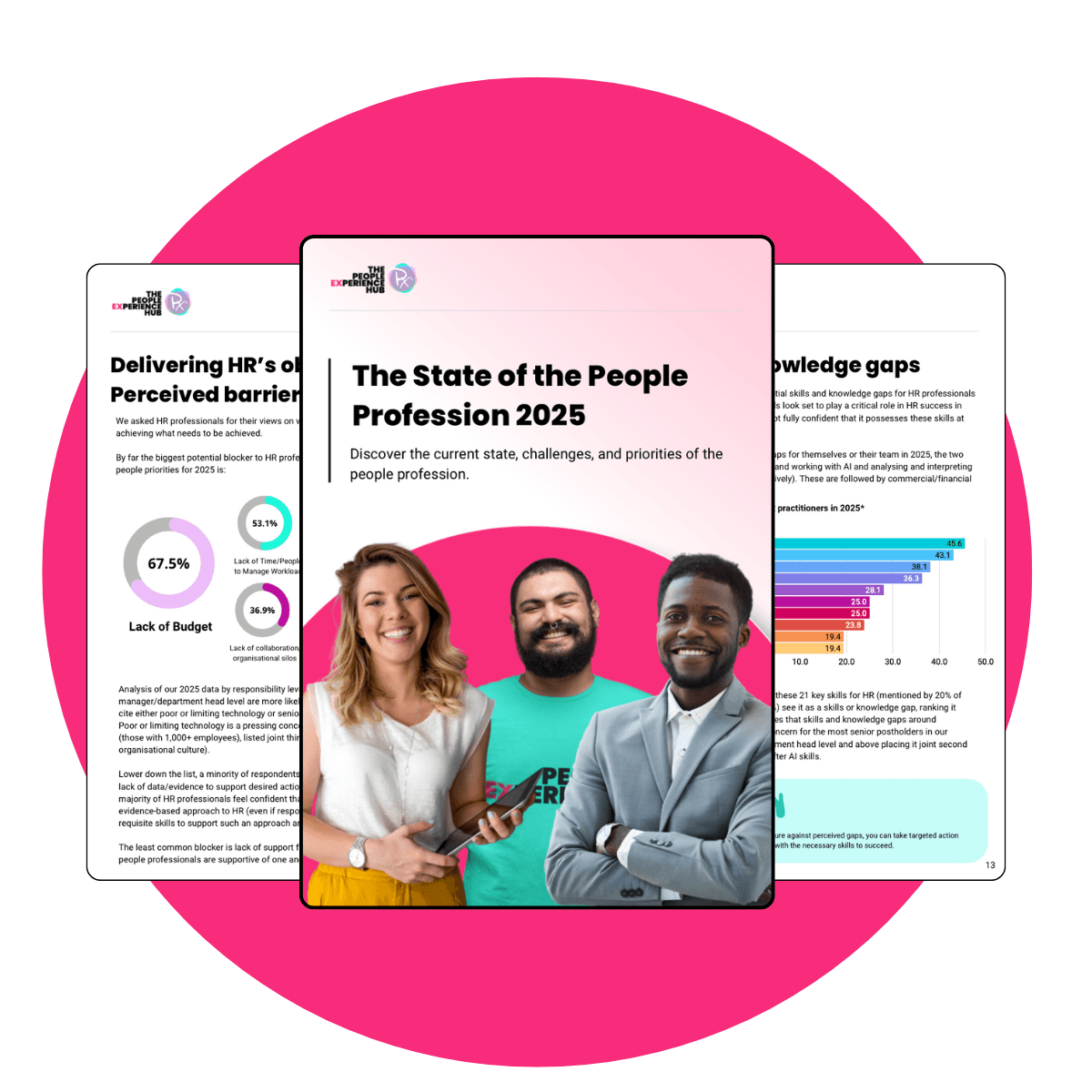The State of the People Profession Press Release
AI and evidence-based HR skills are essential for success in the people profession in 2025, according to new research - but almost half of HR practitioners are not confident that they possess these skills. This is among the key findings of the State of the People Profession 2025 survey from The People Experience hub. The survey looks in detail at HR’s strategic priorities, opportunities and challenges for 2025, with a special focus on HR’s AI usage and concerns.
State of the People Profession press release
AI is a critical skills gap area for HR in 2025, People Experience Hub survey shows
EMBARGO DATE: 00:00 hours on 21st April 2025
AI and evidence-based HR skills are essential for success in the people profession in 2025, according to new research - but almost half of HR practitioners are not confident that they possess these skills.
This is among the key findings of the State of the People Profession 2025 survey from The People Experience hub. The survey looks in detail at HR’s strategic priorities, opportunities and challenges for 2025, with a special focus on HR’s AI usage and concerns.
Two-thirds (66.3%) of HR professionals see understanding and working with AI as the most important skill for HR in 2025 and beyond. This is closely followed by change management (63.8%) and analysing and interpreting data (56.9%).
However, HR professionals with AI skills are in short supply. When asked to identify skills or knowledge gaps for themselves or their team in 2025, the two most common responses are understanding and working with AI and analysing and interpreting data (mentioned by 45.6% and 43.1% respectively).
Nick Court, People Experience Hub CEO comments: “It’s encouraging to see that people professionals in our survey recognise that ongoing success in HR will require an ever more AI-assisted and evidence-based approach. But HR shouldn’t feel like it needs to play catch-up on AI. Building AI skills should be seen as an opportunity. HR professionals can make the most of AI by focusing their 2025 skills development strategy on areas where AI can add the greatest value to their organisation. They can then provide AI training for HR targeted on dealing with the organisation’s key strategic challenges or hire new talent with these capabilities.”
While AI skills are at a premium, AI usage in HR is widespread and looks set to increase rapidly. More than two-thirds (68%) currently use AI tools in their work, rising to 69.6% of organisations with board-level HR representation. By responsibility level, the least senior respondents - those in individual contributor/specialist roles - are the biggest AI users, with 90.9% deploying AI tools.
Nearly half (45.6%) of HR professionals are currently using HR tools with AI features, most commonly in recruitment - for example via AI features within applicant tracking systems (ATS). Some respondents are using AI in recruitment for creating job descriptions and skills matrices, suggesting edits to job ads and providing candidate summaries.
Looking ahead, one-third (35.9%) plan to implement HR software with AI features in 2025, while three in 10 (28.2%) will introduce AI-driven HR tools or features.
The research also reveals HR’s top three concerns regarding AI in 2025:
- data confidentiality, security and governance;
- the accuracy and reliability of AI outputs; and
- cost.
Notes for editors
- Nick Court (People Experience Hub CEO) and Rob Robson (COO and Director of People Science) are available for comment. Send requests for comment by email: media@pxhub.io or click to access the online calendar for Nick Court
- The People Experience Hub State of the People Profession 2025 survey is based on survey research conducted between December 2024 and February 2025 with responses from 160 HR practitioners/people professionals. The complete survey report is available on request.
- The People Experience Hub is a UK technology company delivering a flexible employee survey framework that helps employers to better understand and predict people outcomes, such as employee engagement or wellbeing.

